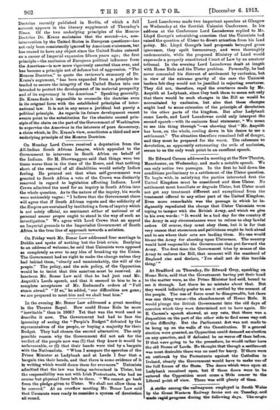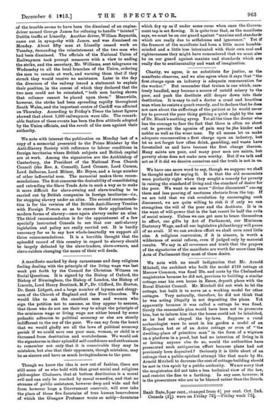A strike among the railwaymen employed in South Wales by
the Great Western Railway broke out on Tuesday. and made rapid progress during the following days. The origin
of the trouble seems to have been the dismissal of an engine- driver named George James for refusing to handle " tainted " Dublin traffic at Llanelly. Another driver, William Reynolds, came out in sympathy with James, and was dismissed on Monday. About fifty men at Llanelly ceased work on Tuesday, demanding the reinstatement of the two men who had been dismissed. The officials of the National Union of Railwaymen took prompt measures with a view to ending the strike, and the secretary, Mr. Williams, sent telegrams on Wednesday to all the local branches of the Union, ordering the men to remain at work, and warning them that if they struck they would receive no assistance. Later in the day the directors of the railway issued a statement to explain their position, in the course of which they declared that the two men could not be reinstated, " both men having shown that reliance cannot be placed upon them." Meanwhile, however, the strike had been spreading rapidly throughout South Wales, and the important centre of Cardiff was affected on Thursday. According to Friday's Times the latest figures showed that about 1,500 railwaymen were idle. The remark- able feature of these events has been the firm attitude adopted by the Union officials, and the revolt of the men against their authority.



































































 Previous page
Previous page